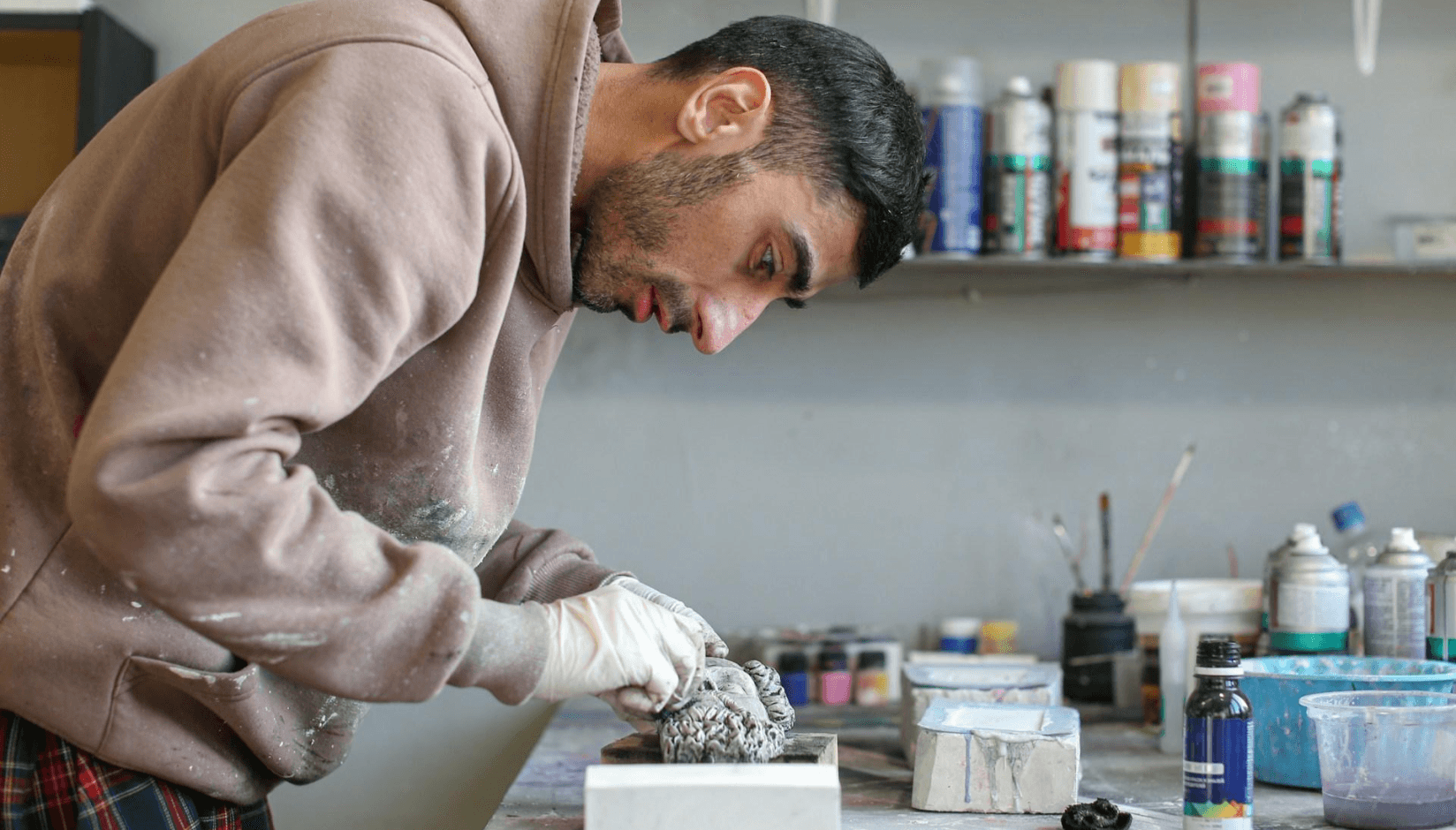- Features
- Solutions
- Pricing
- Resources
- Contact
- Book a demo
Flex Spaces at Train Stations: All You Need to Know About the Cutting-Edge Concept

Table of Contents
Coworking spaces permeate all spheres of people’s lives. Operators almost knock at customers’ doors by launching their hubs in suburban areas. Furthermore, the coworking industry begins to intertwine with logistics. And flex spaces at the train stations prove the trend.
Launching a workspace at the train station sounds like a fresh and innovative business model, but
- How do they function?
- What audience do they target?
- How do they market their services?
I addressed these and many other questions to Bastian Boss. Bastian is the head of Art Direction, Brand-Strategy, Service and Interior Design of everyworks project, which is a network of flex spaces located at the main train stations of the biggest German cities such as Berlin, Frankfurt, Hanover, Karlsruhe, Mannheim, and Nuremberg.
Whether you operate a coworking space or just plan to open one, you must read Bastian’s answers to learn about the phenomenon firsthand.
1. Train stations are usually associated with everything but concentration. How did the idea of starting coworking spaces in the heart of the hassle appear?
Bastian: People spend a lot of time commuting. They often arrive at the train station an hour or half an hour before the train departure. Or they have to wait some time to change the train. People try to work at train stations to save this precious time. Though, it’s not always easy to concentrate or receive an online call at a noisy place such as the train station.
And this is exactly the reason why we chose to put coworking spaces on train stations. We want to allow people to continue their efficient work at the station in comfortable, professional, and quiet environments.
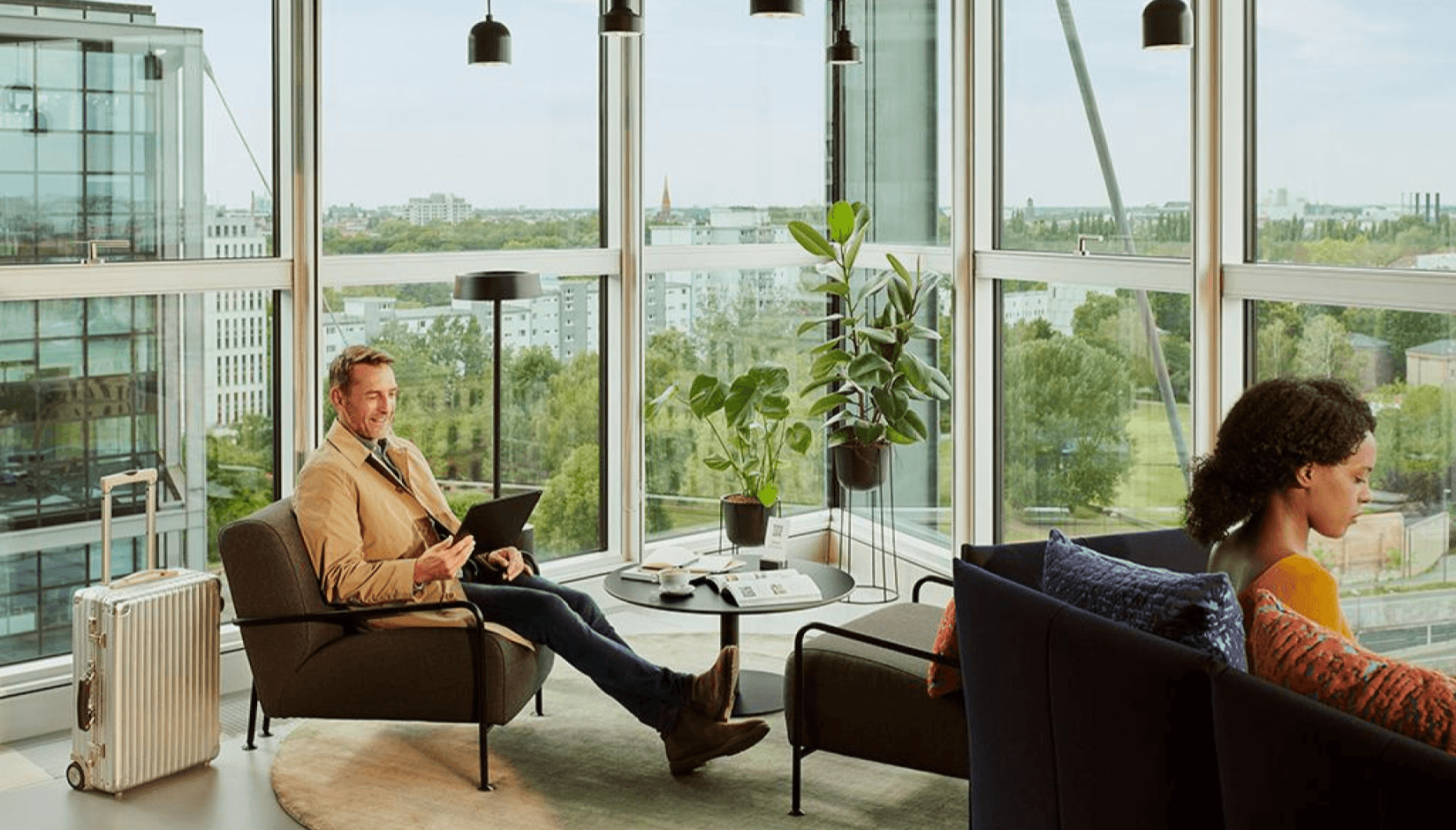
Photos by: https://www.schmott.com, https://bus.group
2. Who are everyworks customers?
Bastian: We offer our flexible workspace service to everyone who has the need to work in train stations. It's simple to use and always very centrally located and with the best connections. So it’s obvious that a lot of customers are also Deutsche Bahn (the national railway company of Germany) customers.
Our amenities include an open area with different categories of seating situations, meeting rooms, and phone booths. Coffee, water, and tea are included. It's all within the price of 16 cents a minute.
We also offer flex offices spaces for longer periods of stay. The office prices are negotiated individually according to customer needs and are a separate product offer.
3. How do you meet the requirements of two target customer groups?
Bastian: For example, in Berlin, we have offices that we rent out to teams. But on the other side, we have a lot of people traveling by train. And our idea is to give people that have half an hour or one hour between changing trains access and the possibility to go into a focused area, and calm down, relax, maybe have a meeting, or just write an email in a tranquil zone.
To focus on frequent travelers and resident attendants we have:
- Special staff taking care of the tenants that have a home base at everyworks and come in every day to work in a usual manner.
- Different user experiences, routines, journeys, and furniture typologies that we offer.
- And an easy access policy via our app.
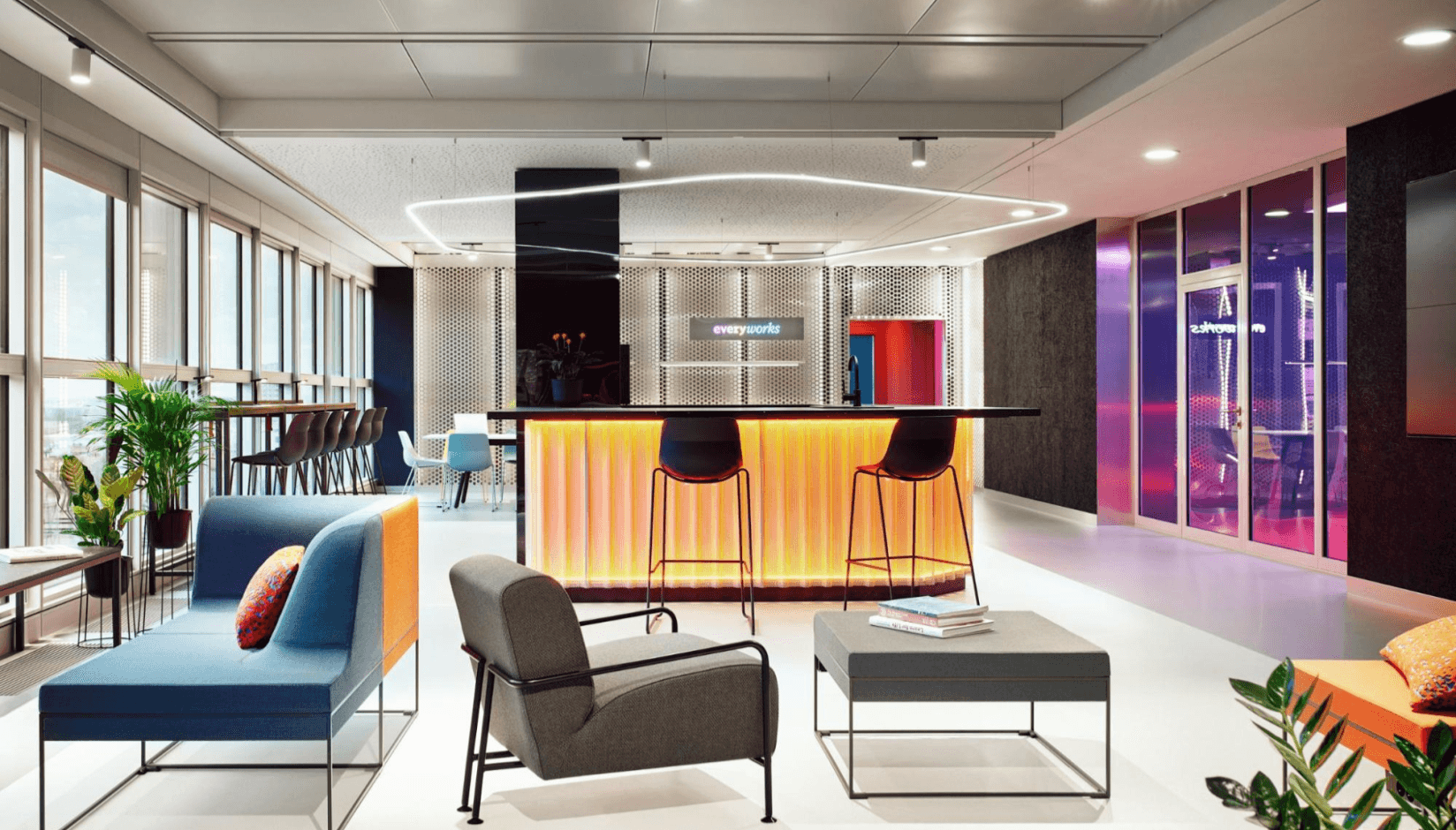
The combos of desks and phone booths in our minute seat area are more popular among passengers. Using phone booths, they can have their private time, which they don't have at the train station. And they can make a call if they want it to be private. But if they just want to write an email or read an article, they can sit on the couch, focus on their laptop screen, watch out of the window, and drink coffee. While customers check in with us, they can change their working environment several times depending on their actual need.
At everyworks disquiet customers, whether train passengers or just people living near the stations, get back to a quiet mood. Our spaces have a kind of quietness rule. We are not welcoming groups sitting in the open space and talking a lot. Instead, we have a quieter, more aware look and feel in the room.
4. Could you please elaborate on the flexible payment model you use at everyworks?
Bastian: We don't have memberships like conventional coworking spaces. We picked out the pay-as-you-go model because people traveling by train and people arriving at train stations usually don’t have eight, five, or even four hours of time.
The fragmented time slots are like a routine for traveling people. That's why we want to give as much flexibility as possible. We created our minute seat product with flexibility in mind. I mean, you really can pay by the minute.
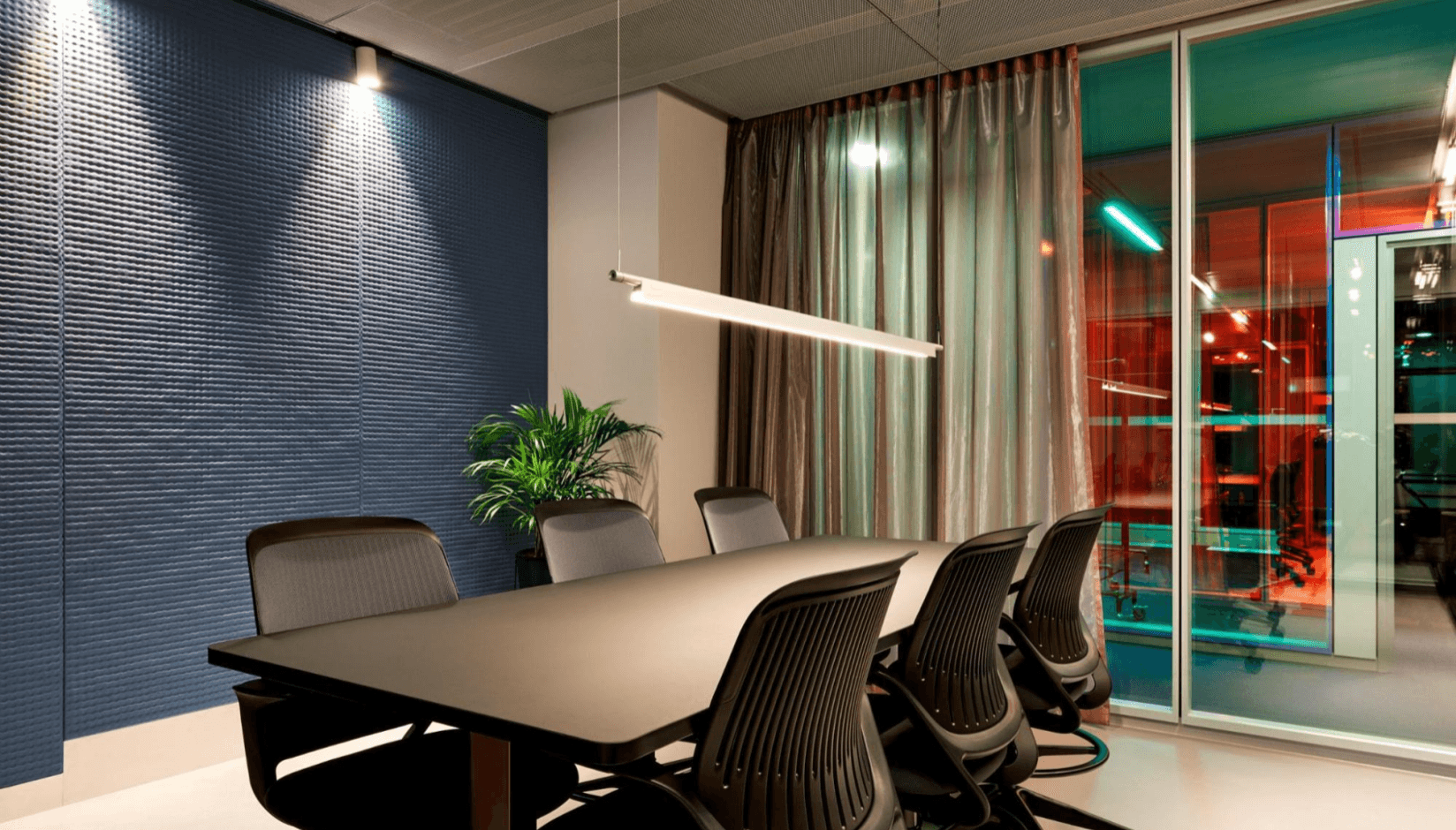
5. In your opinion, why does a pay-by-the-minute pricing model brings some challenges?
Bastian: We did a user research before implementing the pay-as-you-go pricing model and asked people what they thought about it. We just wanted to try it because we didn't get 100% proof that this would be the best-suiting price offer. It's still ambivalent from a psychological point of view as some customers might feel pressured when seeing time going by and at the same time paying by minute.
I would say that 50% of surveyed people say: “Hey, it's really nice that I can be so flexible.” And others say: “It puts me under pressure because I think the time is running out.” Maybe your readers could give us a little feedback here ;)
But what we want to give the customers is the chance to be as flexible as possible. We want them to pay only as much as they are using, not more, not less. We are convinced that most customers value this flexibility even if flexibility costs a bit more.
As to our second audience, people living around train stations have different rates. For instance, customers can also book a day desk at everyworks. If a person lives around the corner and wants to work one day in the space, they can book a seat for one day and pay a fixed price. Also, when teams lease an office on a monthly basis, they pay monthly fees.
If a customer comes to everyworks for a meeting, they have 30 minutes before and 30 minutes after the meeting. It's included in the price. And then they have a one-hour meeting, for example, and it costs them six euros or whatever. Depending on the size of the room, for sure.
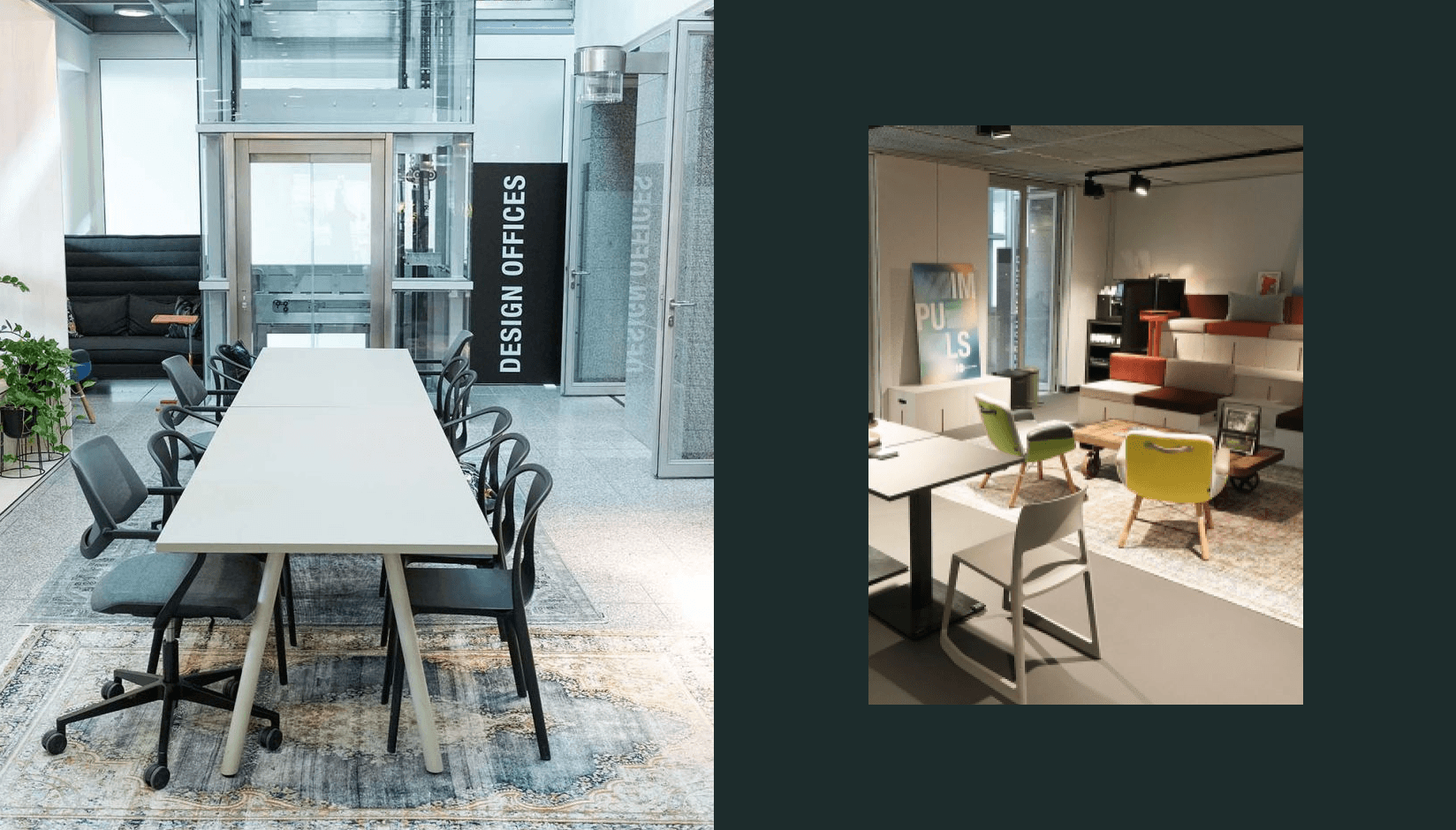
everyworks also offers access to third-party spaces with IntercityHotels (Frankfurt am Main) and DesignOffices( Nürnberg and Karlsruhe). Customers can use everyworks app to enter those partner workspaces under the same conditions.
6. Why do you think customers need to adopt the everyworks concept?
Bastian: We started the project before Corona. We had a lot more business travelers on the trains when we developed the concept. And then, when we opened, Corona hit. The travelers went down a lot. As I said, we still try to make the pricing really flexible. But we believe despite coming from lower starting point the increase in customers and check-ins that we have seen in 2022 will continue also in the following years.
I would say it's about something other than the concept itself. It’s more about the number of people using the service.
I believe it's more in terms of explaining it better. Showing routines when people can use it makes sense.
For instance, less and more efficient traveling is better traveling. If two people come for a meeting from different areas and go only part of the way, and meet halfway at everyworks, then it's more efficient. Everybody has a smaller footprint. Our job is to intensify our marketing as we are not yet where we want to be in terms of brand awareness. We want people to ideally entirely adopt and fully understand the benefits of a very flexible workspace concept into their routines. Then those who already use it, really like it.
It takes some practice to be ready to use this kind of service for like half an hour. Most people would just walk around the station or go into the bakery to drink coffee and maybe write an email on a mobile phone.
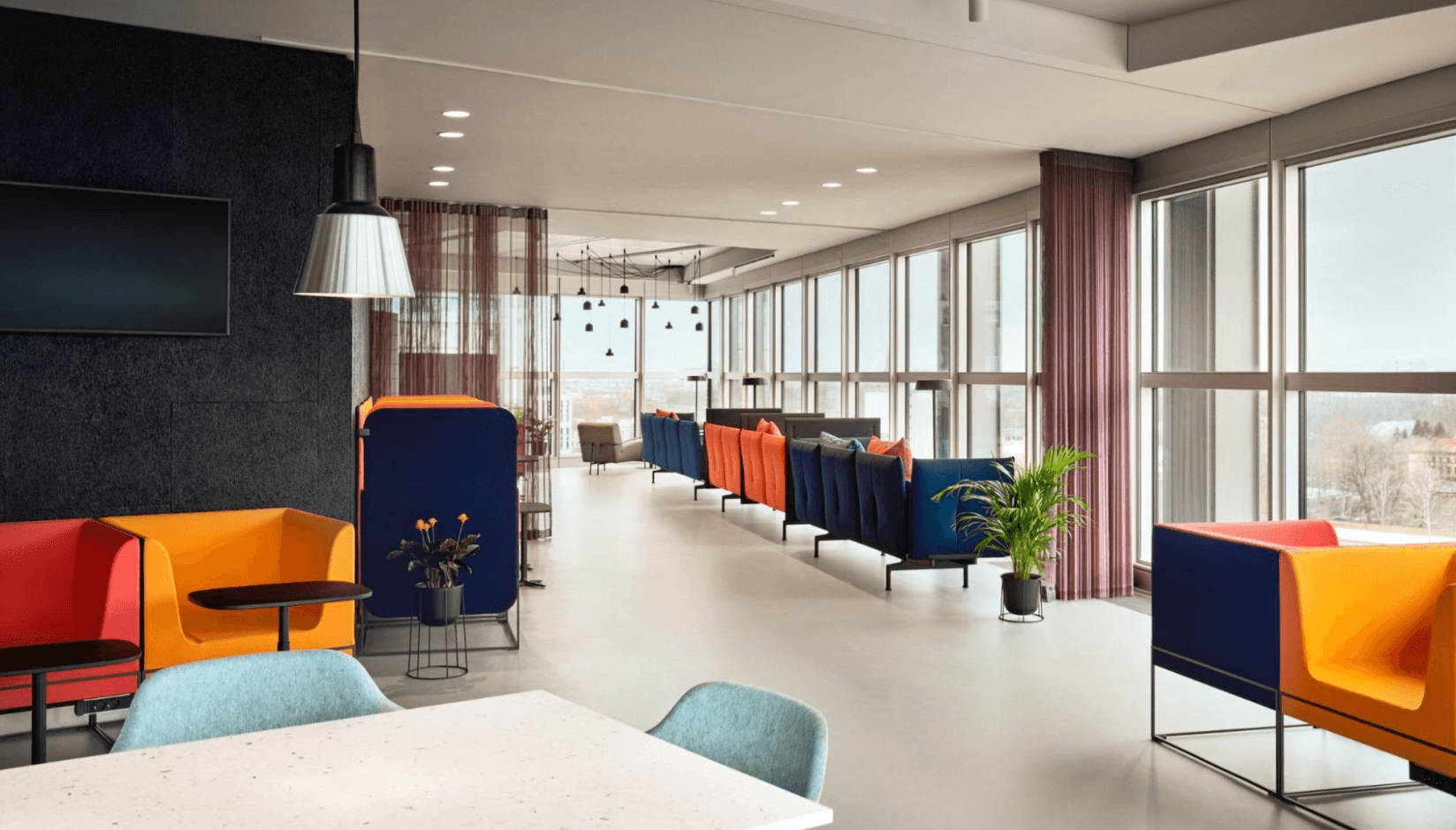
But when a passenger knows there's a space, it takes them only five minutes to check-in. So they can work productively for 20 minutes.
This is like a gym you can go to. If you go there for the first time, it takes longer to get used to the amenities. But if you know your routines, you go there very regularly. It doesn't take you much time anymore because you know exactly what you need. You check in easily.
Thanks to our app we can guide customers to where we are and allow easy check-in. And of course, with every check-in it feels easier for the client. But still we regularly check how to improve our communication here.
You have to break into people’s routines, and this is what we anticipate with this concept.
But we believe that with proper communication, passengers will understand that if a train is too late or if they arrive at the train station one hour earlier, they can just sit in a quiet room, have a meeting, finish some tasks, and then board their train. Or if their train arrives earlier, they can have a meeting and then go to the hotel.
7. Can you say that everyworks is popular already?
Bastian: We have six locations at the moment and we are planning to launch new ones, constantly growing the network.
I can’t say we are very popular yet. It's coming up slowly. But people say they like the flexibility and that the spaces are kind of unexpected. You wouldn't expect a fancy business lounge vibe space at the train station. But when people arrive here, they see the design and serene atmosphere, they really appreciate it.
8. What are the key everyworks challenges, and how do you overcome them?
Bastian: The biggest challenges are getting more people in the space and crafting good commercials. Basically, sending the right messages to the people to make them understand the benefit of the product.
As I said, people have their routines. They're sticking to their routines, and it's really hard to break them and let them know that they could be working normally while traveling. They could use little time slots in their daily routines to be really effective. And this would also involve being a member, a customer of everyworks.
To overcome the above challenges, we try new strategies, make more user research, get customer journeys straight and plug in the leaks of these journeys. I mean, we analyze the ways people travel nowadays to see what physical touchpoints they use.
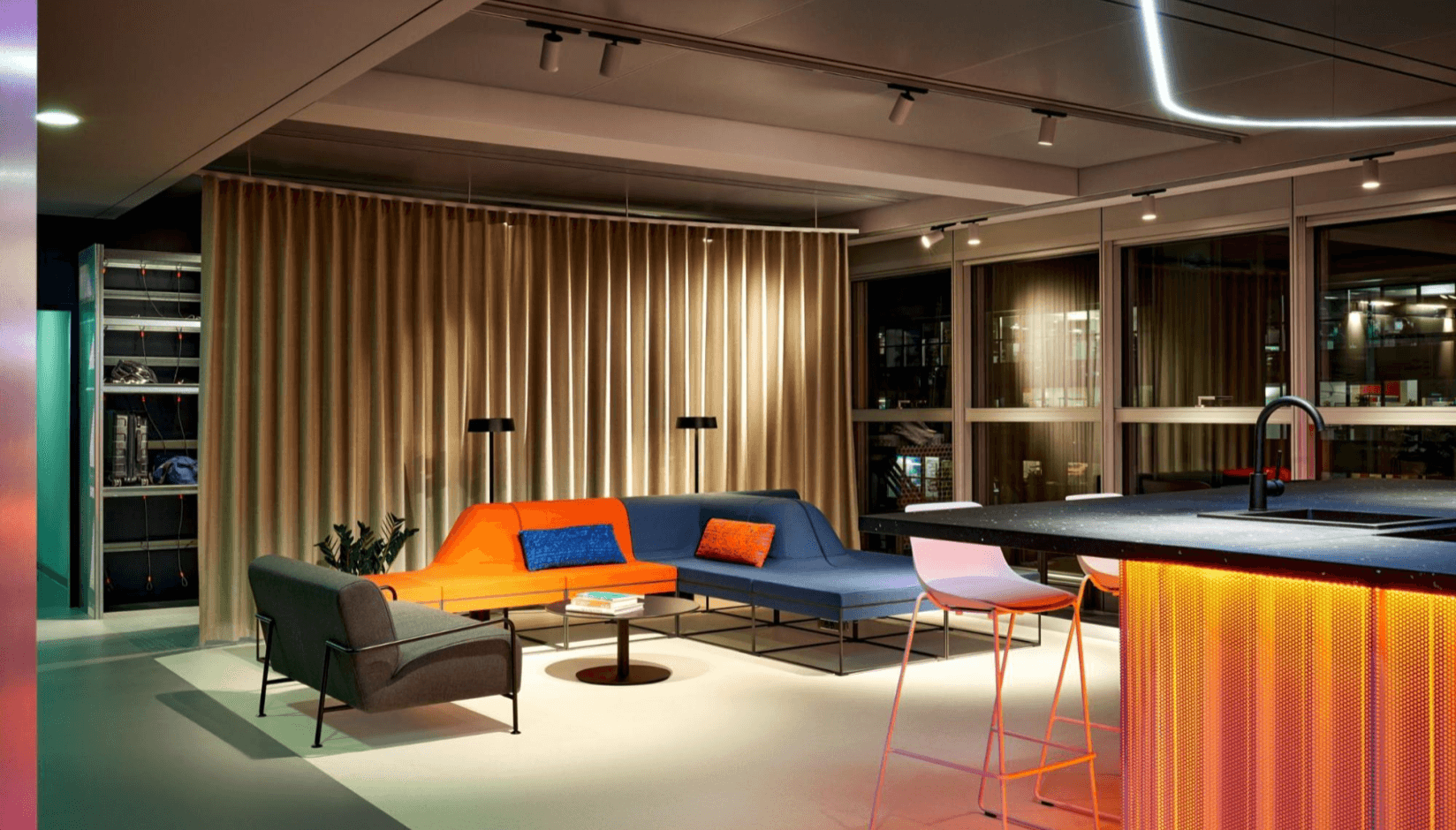
Being a flex space at the train station, we must find a way to address people’s needs at the moment these needs appear.
If a person is sitting at home in a comfortable chair and sees that there is a coworking space nearby, not so many people would go straightly to that coworking space the next day. But when you are at the train station and your train is delayed or canceled, you need a space to go. And then, you have to find the information, which is a challenge.
- Train stations are usually public. They don't allow too much marketing. Even if they do, it’s really expensive. Both physical banners on the walls and mobile phone pop-ups. Besides, train stations are already overbooked with information, and it's not an easy task to give someone the right information at the right time.
- If you look through Instagram and other social media, there is too much noise. Social networks contain too many commercials shouting at you all the time.
- I think it's nicer to find a way to, for example, talk to big corporations. To say, "Hey, this may be exciting for you.” Addressing individual users is not as efficient as addressing a big corporation with many employees. These employees are frequent travelers. So, it’s much better to address the company itself and say, “Hey, we have an offer here in different cities in Germany. You are having, let's say, 200 people every month traveling by train. So why don't you give them access to our spaces so they can be more efficient when traveling.”
This is one of the strategies described on our website. We already have a lot of big partners that forward the offer to their employees. I would say 80% of people in Germany are corporate employees, and 20% are freelancers. We address freelancers with Instagram or LinkedIn commercials. But to get the employees of the big companies we are going a different path
9. Can flex spaces on the crossroads become a trend in 2023?
Bastian: I think coworking can become a kind of password for innovative spaces like everyworks in 2023. We interpret it in the broader sense. It doesn’t necessarily mean sitting together and collaborating on something.
In everyworks, people are sharing the same facilities rather than knowledge.
You can come to everyworks here and there, talk to other visitors, ask what they are doing, and maybe launch a startup together. You can enjoy the atmosphere of the people around you. But still, you have your quiet zone to concentrate without being in a capsule alone.
This is how we interpret coworking, which is why we call it workspace, not coworking. But our workspace gives all the service levels you need, and coworking is one part of it.
Hope this interview threw some light on the flex spaces at the train station business model. If you have more questions for Bastian, the project developer, design lead, and brand strategist, you can contact him on LinkedIn.
If you feel like reading more interviews with coworking industry innovators, check out these and many others published on the Coworking Smarts blog.
- “We Are Locally Owned But Internationally Connected” — Rubin Beckner About Key Components of Giddy Venture X’s Success
- Unf*ck the Workspace to Create a Fantastic Coworking Environment for Members with Neil Usher
- Amy King on How to Start a Sustainability Journey as a Coworking Business Owner
And don’t forget to sign up for our newsletter to get the hottest content right to your inbox.



